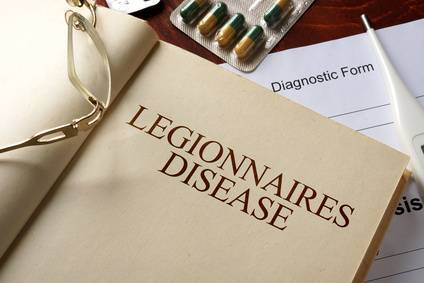Legionella: Landlords’ Responsibilities
Published on May 11, 2018 by Sarah Mac

All landlords have legal responsibilities to ensure the health and safety of their tenants by providing a place to live that is safe and hazard-free.
Under the Health and Safety at Work etc. Act 1974, landlords owe a duty of care to their tenants. In addition, under the Control of Substances Hazardous to Health Regulations 2002 (COSHH), there is a framework of actions in place to control the risk from a variety of hazardous substances by identifying the risk, assessing it and putting in place any relevant measures to control. For the purpose of COSHH, hazardous substances include biological agents. Legionella comes under this category.
What is Legionella?
Legionnaire’s disease is caused by the inhalation of small droplets of contaminated water containing Legionella. It is a form of pneumonia, and it is potentially fatal.
Legionella is a bacterial organism that is capable of colonising man-made cold and hot water systems. Wherever water is stored and/or recirculated; there is a food source such as sludge, rust or scale and water droplets are produced, Legionella can multiply. Without control measures in place, Legionella can colonise a water system, potentially putting tenants at risk of inhaling the bacteria through water droplets.
Legionella thrive at temperatures ranging from 20 to 45 degrees Celsius, but are killed off at temperatures of 60 degrees or more.
What are landlords’ obligations?
Landlords of both residential and commercial premises are required to assess the risks to their tenants of exposure from Legionella under the L8 Approved Code of Practice (ACOP).
When new guidance was issued in 2013, there was a general misunderstanding that the legislation had changed and that residential landlords had become subject to new requirements. This however was not the case. Any so-called guidelines that suggest a landlord must obtain a legionella testing certificate is actually incorrect. The Health and Safety Executive (HSE) itself states that legionella testing in residential hot water systems is generally not required other than in exceptional circumstances.
However, the fact remains that a landlord does have a duty to make sure that the risk of exposure to Legionella to tenants and visitors is adequately assessed and controlled.
In most residential environments, the risks will be low, particularly if there is a high turnover of water; where there is no water storage system; where hot water comes from instant heaters and where the only outlets are wash hand basins and toilets. As long as this is the case, a basic risk assessment will be sufficient providing it is carried out on a regular basis to take in any changes to the water system.
Control measures
Landlords can implement simple control measures to make sure the risk remains low. These include flushing out the water system ahead of the start of a new tenancy; setting the temperature of the hot water cylinder to 60 degrees Celsius; ensuring any unused pipework is removed and making sure no debris can enter the system.
The installation of instantaneous water heaters, i.e. electric showers and combi boilers, will significantly reduce the risk of Legionella exposure.
Between tenancies, it is vital that water is not allowed to stagnate. If you rent property to students who vacate their accommodation during the holidays, you will need to put measures in place to run the water system at least once per week. If a property is to be left empty for a long period, you may wish to consider draining the water system down completely to help manage the risks.
Keeping tenants informed
It is important to keep your tenants informed about the control measures you have in place with regard to Legionella. They will need to be aware of the importance of not adjusting the temperature of the water cylinder. If the water appears to not be heating sufficiently, or any other problems are detected, make sure your tenants know to advise you without delay so that you can take appropriate action.
Showers are a particular risk area where Legionella exposure is concerned because they create and disperse water droplets which can then be inhaled. Providing the shower is used regularly the risk should be reduced, however it is important for tenants to be aware of the importance of regularly cleaning and disinfecting showerheads. If the shower is electric and heated on an instantaneous basis then this will pose less of a risk so you may wish to consider installing this type of system wherever possible.
Assessing the risk
The assessment is a simple process in most case. It must be carried out by a competent person and there is no reason why this person cannot be the landlord himself. You can of course arrange for someone else to carry out the assessment on your behalf if you prefer.
Legionella risk assessment and control measures should be simple and low cost. Providing you follow the HSE guidelines, you should be able to effectively prevent your water system becoming colonised with Legionella and in doing so, ensure your duty of care to your tenants.

